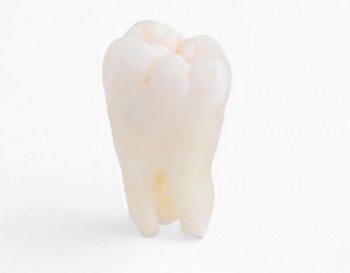Oral Surgery

Overview
Our Roseville dentistry team provides a range of dental and oral surgery services to help you achieve optimum oral health. We work with other health care specialists as required including orthodontists, neurosurgeons, oncologists and radiologists.
What Is Oral Surgery?
Oral and maxillofacial surgery, commonly referred to as oral surgery, is the medical specialty that deals with the mouth, throat, teeth, jaws, head and neck. Oral surgeons are usually trained as dentists, then continue for four to six additional years in medical school with specialized training and residencies. They are qualified to administer anesthesia and perform a variety of surgical procedures in the head and neck.
Oral surgeons treat a wide spectrum of head, throat and mouth disorders and diseases such as:
- Damaged facial bones and soft tissues of the head
- Cancer, tumors and lesions
- Facial reconstruction from injury
- Correction of cleft palate
- Cosmetic surgery
- Jaw misalignment
- Extraction of teeth; including wisdom teeth
Reasons You May Need Oral Surgery
If you are experiencing pain in the jaw, teeth, neck or head, you may need to consult with an oral surgeon from our Roseville dentist’s office. Pain can result from many disorders and should be evaluated by a professional who can assess the problem and recommend a treatment plan.
Common Reasons for Pain
- Grinding teeth at night (bruxism)
- Temporomandibular (jaw joint) disorder (TMJ)
- Damage to a tooth or nerve
- Infection
- Impacted or improperly positioned wisdom teeth
You may be referred to an oral surgeon by another health care professional. An orthodontist, for example, may request an evaluation of specific structural irregularities which could affect orthodontic treatment outcomes.
Wisdom teeth, technically third molars, generally erupt in the late teens or early twenties. They begin to form when a child is between 7 and 9 years old. They may not completely form, or may not erupt if completely formed. If the jaw is too small, wisdom teeth may cause discomfort, pain or cause existing teeth to move. Cleaning around an improperly positioned third molar may be difficult. Build-up of food and plaque can cause infection and disintegration of surrounding tissues and bone.
Types of Surgeries
Most wisdom tooth extractions and surgeries can be done on an out-patient basis in our Roseville dentist office. A fully erupted wisdom tooth can often be extracted without surgery. The tooth is removed using special equipment under local anesthesia. After the area around the tooth is numbed, the tooth is first loosened, then pulled. A small suture, or stitch, may be used to close the opening but is not always required.
An impacted tooth may require surgery, which can be done under either local or general anesthesia. A small incision is made to create a flap in the gum to provide access to the tooth. In some cases, a portion of the jawbone tissue that holds the tooth may need to be removed. The tooth is usually cut into pieces, removed, and the incision closed with stitches.
Our professional team works closely with patients in recommending and implementing an oral surgery treatment plan. We will answer your questions and review the advantages and disadvantages of treatment options.
If you have any questions about oral surgery or wisdom teeth please contact your Roseville dentist.




